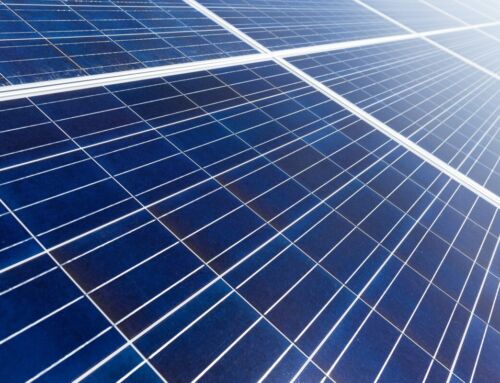The interest and investments made in renewable energy sources have been increasing extensively as the world struggles to find solutions for issues of climate change and environmental degradation. Among these, solar power stands out as a beacon of hope due to its sustainability and potential to revolutionize the energy landscape. Solar energy sustainability involves the environmental benefits of harnessing sunlight and the long-term viability and efficiency of solar power technologies and solar panels. This article will look into the concept of solar energy sustainability, examine its various dimensions, and highlight how it can contribute to a more sustainable future.
What is Solar Energy Sustainability?
Solar energy sustainability refers to the capacity of solar power systems to provide a continuous, reliable source of clean energy over the long term while minimizing environmental impacts. This concept encompasses several key aspects, including the efficiency of solar panels, the environmental footprint of manufacturing and disposal processes, and the ability to meet future energy demands sustainably.
Key Aspects of Solar Energy Sustainability
Environmental Impact
One of the strongest points for solar energy is its minimal environmental impact. Solar power generation does not produce or release greenhouse gases into the atmosphere or air pollutants during operation, making it crucial in reducing carbon emissions and combating climate change. However, sustainability also involves considering the entire lifecycle of solar panels, from manufacturing to disposal. Efforts are ongoing to improve the environmental performance of these processes.
- Manufacturing: Producing solar panels involves extracting and processing raw materials like silicon and rare earth elements. While this process does have some environmental impact, advancements in technology and recycling practices are helping to mitigate these effects. For instance, developing more efficient manufacturing techniques and using less toxic materials are contributing to greener production methods.
- Lifecycle Management: Solar panels typically have a lifespan of 25 to 30 years. End-of-life management is crucial for sustainability. Effective recycling programs are essential to recovering valuable materials and reducing waste. Innovations in recycling and e-waste technologies are making it easier to handle used panels, further enhancing the sustainability of solar energy systems.
Energy Efficiency
The efficiency of solar panels is what makes the sustainability of solar energy systems possible. Higher efficiency means more energy is generated from a given area of panels, which translates to better performance and less land use. Modern solar panels have seen significant efficiency improvements due to materials and design advancements.
- Monocrystalline Panels: These panels are proven to be highly efficient and have wonderful long-term performance. Made from a single crystal structure, they typically offer higher energy conversion rates compared to other types.
- Thin-Film Panels: Although generally less efficient than monocrystalline panels, thin-film panels are lightweight and flexible. They can be used in applications where traditional panels might not be feasible, such as on curved surfaces or in portable devices.
- Bifacial Panels: These panels capture sunlight from both sides, increasing energy yield and efficiency. They are effective in environments with reflective surfaces, such as snowy areas or rooftops.
Economic Feasibility
Solar energy’s sustainability also hinges on its economic viability. Over the past decade, the cost of solar panels has decreased significantly, making solar power more accessible to a broader range of consumers. The economic benefits include lower energy bills, job creation, and economic growth in the energy industry.
- Cost Trends: Technological advancements, developments, and economies of scalability have driven down the cost of solar panels. The price per watt has dropped dramatically, making solar power more viable than traditional energy sources.
- Incentives and Financing: Various incentives and financing options, such as tax credits, rebates, and solar loans, have further enhanced the affordability of solar installations. These financial mechanisms help offset initial costs and encourage wider adoption.
Integration with Energy Grids
For solar energy to be sustainable, it must be integrated effectively with existing energy grids. This involves ensuring that solar power can be distributed efficiently and that it complements other energy sources. Grid integration also requires advancements in energy storage technologies and smart grid infrastructure.
- Energy Storage: Storage solutions, such as batteries, are crucial in balancing supply and demand. These systems make sure a continuous power supply is maintained even when solar generation is low by storing excess unconsumed solar energy generated during peak sunlight hours.
- Smart Grids: The improvements in smart grid technology enable better management of energy accumulation, distribution, and consumption. Smart grids use data and communication technologies to optimize the integration of solar power and other renewable sources into the grid.
Technological Innovations
Ongoing research and technological innovations are key to enhancing the sustainability of solar energy. Materials, manufacturing processes, and system design innovations contribute to increased efficiency, reduction in costs, and improved environmental performance.
- Perovskite Solar Cells: These emerging solar cell technologies have the possibility to significantly boost efficiency and reduce production costs. Perovskite cells are lightweight and flexible, offering new possibilities for solar energy applications.
- Building-Integrated Photovoltaics (BIPV): BIPV involves integrating solar panels into building materials like windows and facades. This approach allows for energy generation without compromising aesthetics and can enhance the overall sustainability of buildings.
The Future of Solar Energy Sustainability
Looking ahead, the sustainability of solar energy will depend on continued advancements and the adoption of best practices across the industry. Key areas of focus include:
- Enhancing Panel Lifespan and Efficiency: Research into new materials and designs will drive improvements in the longevity and performance of solar panels. Longer-lasting and more efficient panels will reduce the need for replacements and enhance overall system sustainability.
- Improving Recycling Processes: Developing more effective recycling methods for solar panels will minimize waste and recover valuable materials. Innovations in recycling technologies will play a crucial role in ensuring the sustainability of solar energy systems.
- Expanding Adoption: Increasing the adoption of solar energy in diverse applications, from residential to industrial and utility-scale projects, will contribute to a more sustainable energy future. Expanding access to solar power through affordable financing and incentives will be essential for widespread adoption.
The Role of NewSolarQuotes.Com
For those interested in harnessing the benefits of solar energy, websites like NewSolarQuotes.Com and FreeSolarPowerQuotes.com are valuable resources dedicated to helping customers find and install solar panels efficiently. Our website connects users with trusted solar providers, offering expert guidance on selecting the right solar energy systems for various needs. We provide comprehensive information on the latest technologies, financing options, and incentives to make solar power accessible and affordable.
At NewSolarQuotes.Com, we support the transition to a sustainable energy future. Our mission is to simplify the process of acquiring solar panels and ensure that users can maximize the benefits of solar energy. Whether you’re looking to reduce your energy bills, contribute to environmental sustainability, or explore new solar technologies, our team is here to assist you every step.
Conclusion
Solar energy sustainability is a multifaceted concept encompassing environmental, economic, and technological dimensions. By focusing on the efficiency of solar panels, the environmental impact of their production, disposal, and possible recycling, and their integration with energy grids, we can ensure that solar power remains a viable and sustainable energy source. Continued innovation and adoption of best practices will play an essential role in the viability of solar energy.
NewSolarQuotes.Com is dedicated to helping you embrace the benefits of solar energy. By connecting you with top solar providers and offering expert advice, we ensure you can make informed decisions about your solar power investments. Join us in advancing solar energy sustainability and contributing to a cleaner, more sustainable future.





